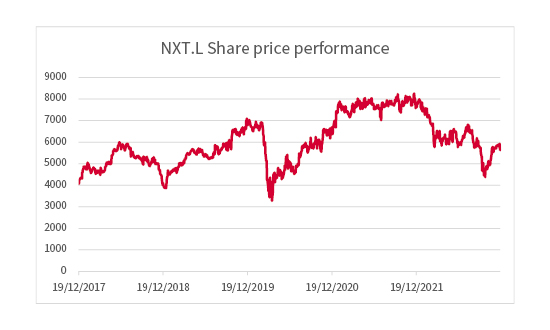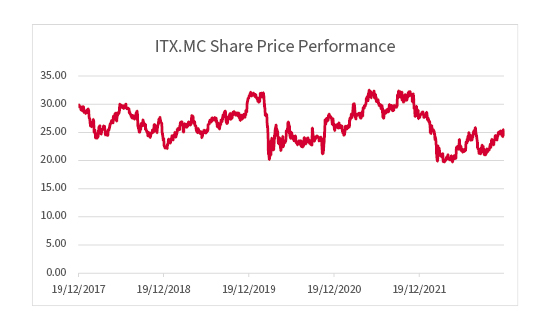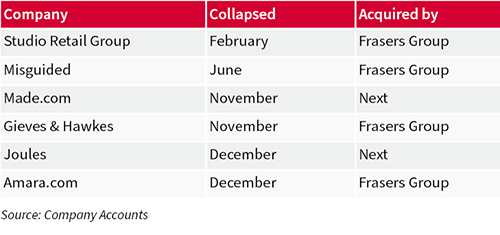


The latest retail sales figures in both the UK and US were the mouldy icing on top of a rapidly crumbling cake. Despite Black Friday promotions that seemed to start right at the beginning of November, UK retail dropped off significantly and the US experienced the biggest fall in sales in 11 months.
People are having to make tough choices about what exactly it is they want from the festive season. What can they do without and what are the traditions and expectations that can’t be ditched if Christmas is to feel like Christmas and not a poor substitute?
In the UK people seem to have been prioritising food spend, popping a few extras into their trollies as they carried out the weekly shop throughout November. All those little tasty treats add up when food inflation is rising at the fastest rate in 45 years. And with budgets so tight if people are spending a bit more on food and drink, they’ve got to cut back elsewhere.
Despite early optimism from some traders that a reopening economy would rejuvenate the sector, the insidious creep of inflation has defeated a number of household names both from the high street and online.
Retailers are having to fight hard for every discretionary pound, and investors have been heading for the hills. On the day the ONS released its retail update only one of the FTSE 350 retail stocks wasn’t in decline (that was ASOS) and if you look back to the start of the year it’s a sea of red, with all FTSE 350 retail stocks down and the aforementioned ASOS was the biggest faller, down a whopping 79%.
Next share price over the last five years

Source: Refinitiv data
From the first trading update of 2022 retailers were warning of a “tougher environment”, with bellwether Next cautioning about increases in costs of goods, UK operating costs and wage inflation. Despite early optimism from some traders that a reopening economy would rejuvenate the sector, the insidious creep of inflation has defeated a number of household names both from the high street and online.
Covid sofa darling Made.com, womenswear veteran Joules and Saville Row tailor Gieves and Hawkes were among the retailers calling in administrators as margins became wafer thin and consumer behaviour was turned on its head.
Trend spotters were at a loss as what used to sell stopped selling in the same way. Warehouses that had struggled to bring in goods during supply snarl-ups became packed liabilities.
Some retailers, like Zara owner Inditex, figured out a way to sell goods at higher prices, ramping up stocks of must-have occasion wear with a social media cachet, that pulled in some customers normally more at home in luxury stores.
Inditex share price over the last five years

Source: Refinitiv data
Next and the Frasers Group muscled their way through the last year by adding girth to their already sizable empires. Frasers’ stock had been in the green until recently, but city watchers are nervous about rising inventory levels and the fact much of the increase in sales for the business has come as a result of store openings and acquisitions.
Notable new additions to Next and Frasers Group

There are also questions about how the company will perform now the controversial figure of Mike Ashley has taken a giant step back from the day-to-day running of the business. So far Michael Murray’s “elevation” strategy seems to be a good bet, with higher-end stores being cushioned from the worst of the cost-of-living crisis by the nature of their customers. Longer-term, with few challengers left in the department store environment, and a roster of brands that could fill a Monopoly board, it’s worth watching the integration of old and new.
Despite retail’s “annus horribilis” it hasn’t been all bad news for investors in retail stocks if they are taking the long view. Some retailers will have made you money over the last five years.
That’s something Next is a master at and its hybrid operation, coupled with a knack of keeping expectations at a manageable level, make this retailer a solid bet going forward. And whilst online-only operations will have been impacted by postal strikes and snarled-up deliveries, the humble high street has come back into fashion.
But, despite solid trading updates, this Christmas isn’t expected to be a stellar one, and with inflation expected to hang around like a bad smell well into 2023 investors are rightly concerned about how much further retailers can put up prices. Primark owner Associated British Food even promised customers there would be no more hikes this year, a stunt likely to tempt shoppers through the doors, but the proof will be in the margins.
Despite retail’s “annus horribilis” it hasn’t been all bad news for investors in retail stocks if they are taking the long view. Some retailers will have made you money over the last five years. If you’d invested £5,000 in Frasers Group, Next or online giant Amazon you’d have enjoyed a 98.9%, 52.7% and 50% return on your investment or in cash terms £9,945, £,7635 and £5,001 respectively. And if you’d jumped on the Etsy bandwagon back in December 2017, you’d have been a real winner, enjoying a whopping 514% return or £32,000.
It’s all about spotting trends, figuring out how consumer habits are going to change and working out which companies are best positioned to respond to those changes. Whilst the last five years have been predominantly about online possibilities, the last twelve months has shown that the virtual high street has grown too big, too fast. There will be further failures, but there will also be opportunities once inflationary pressures begin to ease. The key will be knowing the customer and giving them exactly what they want for as much as they’re willing to pay.
Past performance is not a guide to future performance and some investments need to be held for the long term
This area of the website is intended for financial advisers and other financial professionals only. If you are a customer of AJ Bell Investcentre, please click ‘Go to the customer area’ below.
We will remember your preference, so you should only be asked to select the appropriate website once per device.